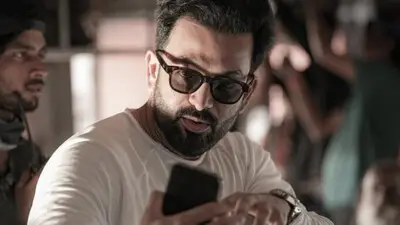For decades, the BBC Hindi Service was broadcast from here, reporting key events such as Indira and Rajiv Gandhi`s assassinations at a time when the news media in India was largely governed by perspectives of the state. In a special broadcast, BBC director general Mark Thompson today said: "This benign Tower of Babel, the scene of so many great broadcasting moments and the home of so many great broadcasters over the years, is now silent; its corridors deserted; its studios empty".
As part of the BBC`s relocation plans to cut costs, the World Service has moved from Bush House to Broadcasting House in central London. Financial compulsions have already reduced the languages in which it is broadcast to 27 languages. As a wave of nostalgia gripped a generation of Indian journalists who worked at the Bush House, Hindi Service journalist Rajesh Priyadarshi told PTI: "It hurts. It was not about brick and mortar, it is the spirit of the building that I will always miss. It will always be with me wherever I go".
Thompson said in the last broadcast: "The BBC first moved into Bush House in 1941. It was wartime and the BBC`s European services had become too big for their temporary headquarters in a converted skating rink in Maida Vale in West London". "In the decades that followed, as the Second World War gave way to the Cold War and then to today`s complex world, Bush House became a unique icon of authority and trustworthiness in news to millions of listeners around the globe," he added.
"Often the World Service and the BBC`s language services were the only source of reliable information available to listeners. In some countries that`s still largely true today," Thompson said. Besides George Orwell and V S Naipaul, those who worked at Bush House over the years included journalists well known to its large Hindi and other language audiences in India, such as Kailash Budhwar, Onkarnath Srivastava, Ratnakara Bhartiya, Harish Khanna, Purushottamlal Pahwa and Achala Sharma.
The BBC World Service began as the BBC Empire Service in 1932. It started its first south Asia division before India`s independence when the Hindustani service was launched on May 11, 1940. The Burmese service began in September 1940. Other language services soon followed from Bush House: Tamil service in May 1941, Bengali in November 1941, Sinhala in March 1942, Urdu in April 1949 and the Nepali service in September 1969.
Many journalists who worked at these services feel a sense of emotional loss at the move away from Bush House. Achala Sharma, who headed the Hindi Service from 1997 to 2008, said: "Having spent 24 years at Bush House, I cannot imagine a better home for the World Service. Its elegant structure buzzed with the sound of different languages from around the world. The building was a witness to the world`s events that unfolded every day".
Journalists recall that leading figures interviewed at Bush House would stay on for informal sessions, including Ravi Shankar, Lata Mangeshkar, Mehdi Hasan, Ghulam Ali, Shashi Kapoor, Inder Gujral, TN Kaul, LK Advani and Qurratulain Hyder. Pervaiz Alam, a senior journalist at the Hindi Service, said: "Bush House was synonymous with professionalism as well as huge fun. Interestingly, in India, Bush House was so well known that some listeners would write only `BBC Bush House London` and the letter would be delivered at our desk".
"Almost every evening at Bush House was unforgettable. Great poets, artists and politicians who recorded programmes with us would stay back and join us for a drink in the famous club," he added. Indian journalists who have worked in Bush House for several years include Pankaj Pachauri, currently the communications adviser to Prime Minister Manmohan Singh. The iconic home of the BBC World Service was designed by Harvey Corbett and built in 1923 with further wings added between 1928 and 1935.
The quintessentially British building was originally constructed for an Anglo-American trading organisation headed by Irving T Bush, after whom it is named. It opened in July 1925, and was then considered the most expensive building in the world, having cost around 2 million pounds. Over a Celtic altar at the centre of the portico is the inscription "Dedicated to the friendship of English-speaking peoples".
Over many years, all the BBC`s foreign language services gradually moved to Bush House. It has broadcast from Bush House for almost 70 years, covering events that have changed and shaped the world. However, the BBC has never owned Bush House. Its owners have been the Church of Wales, the Post Office and now a Japanese-owned organisation, but for millions of listeners in India and elsewhere it remains the building which most represents the BBC.












